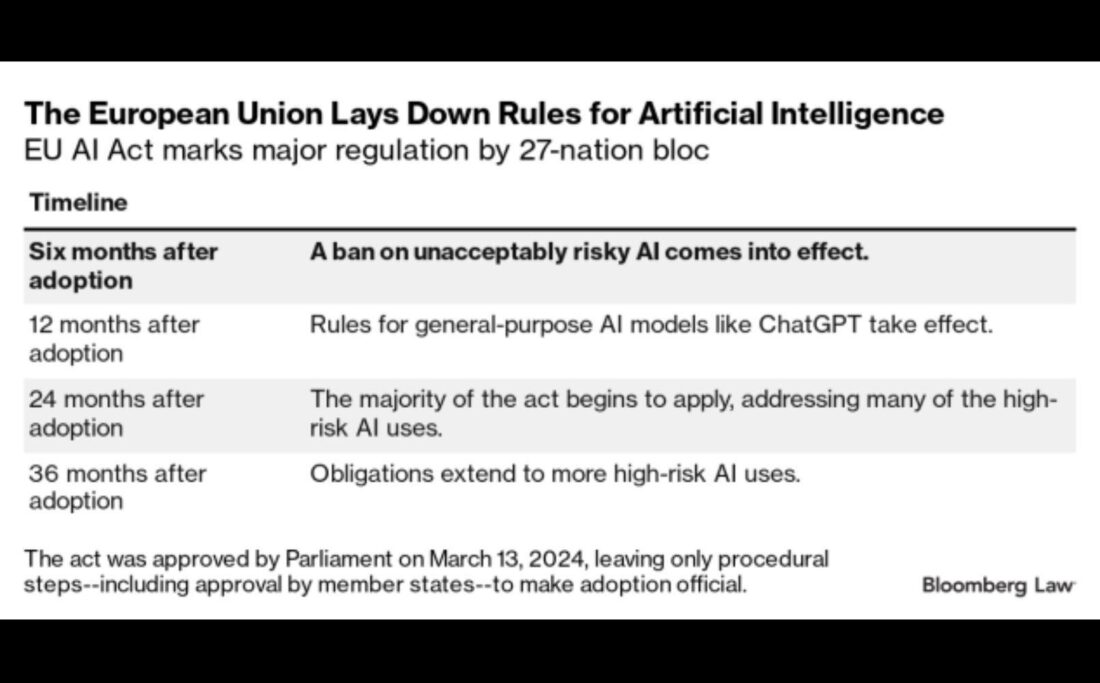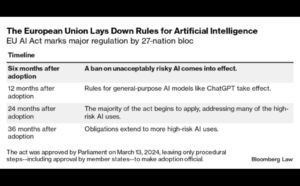What’s going on here?
The European Parliament approved a legal framework limiting AI’s role in society, presumably after spending an evening working through a dystopian film library.
What does this mean?
Decades of literature have told us that AI agents aren’t exactly driven by a desire to protect humanity. And according to today’s scientists and tech wizards, that concern isn’t reserved for the world of fiction. So now, members of the European Parliament are pushing for specialized laws that would prevent certain actions, like detecting emotions in workplaces and schools, making decisions in high-stakes situations like job applications, and scraping CCTV to build facial recognition databases. Any companies that go against the grain could be landed with fines up to €35 million ($37.7 million) or – oddly specifically – 7% of their worldwide sales.

Why should I care?
Zooming out: Pandora’s box.
The European Parliament is mainly concerned about AI’s ability to replace humans in important decision-making roles, which could lead to misinformation, bias, and privacy breaches. But lawmakers want to find the sweet spot, where AI could enhance human life and companies’ productivity by automating certain tasks without, you know, violating basic rights. Plus, come down too hard and Europe could fall behind economically – not least because foreign companies, bound by less stringent rules, might avoid the region if they’d be more restricted there.
The bigger picture: High standards cost.
The US is drafting its own set of regulations, too – trailing behind China, where AI product approvals are already in place. But Europe has a history of sticking to the stricter side, no matter whether the matter is privacy, the environment, food safety, or consumer rights. And because regulations come with a cost that businesses need to foot, that partly explains why Europe’s stock markets tend to be valued lower than stateside equivalents. So unless European AI rules turn uncharacteristically lax, don’t count on that gap closing up anytime soon.
—
Originally Posted March 14, 2024 – The European Parliament Approved A Legal Framework To Limit What AI Can Do
Disclosure: Interactive Brokers
Information posted on IBKR Campus that is provided by third-parties does NOT constitute a recommendation that you should contract for the services of that third party. Third-party participants who contribute to IBKR Campus are independent of Interactive Brokers and Interactive Brokers does not make any representations or warranties concerning the services offered, their past or future performance, or the accuracy of the information provided by the third party. Past performance is no guarantee of future results.
This material is from Finimize and is being posted with its permission. The views expressed in this material are solely those of the author and/or Finimize and Interactive Brokers is not endorsing or recommending any investment or trading discussed in the material. This material is not and should not be construed as an offer to buy or sell any security. It should not be construed as research or investment advice or a recommendation to buy, sell or hold any security or commodity. This material does not and is not intended to take into account the particular financial conditions, investment objectives or requirements of individual customers. Before acting on this material, you should consider whether it is suitable for your particular circumstances and, as necessary, seek professional advice.


























Join The Conversation
If you have a general question, it may already be covered in our FAQs. If you have an account-specific question or concern, please reach out to Client Services.